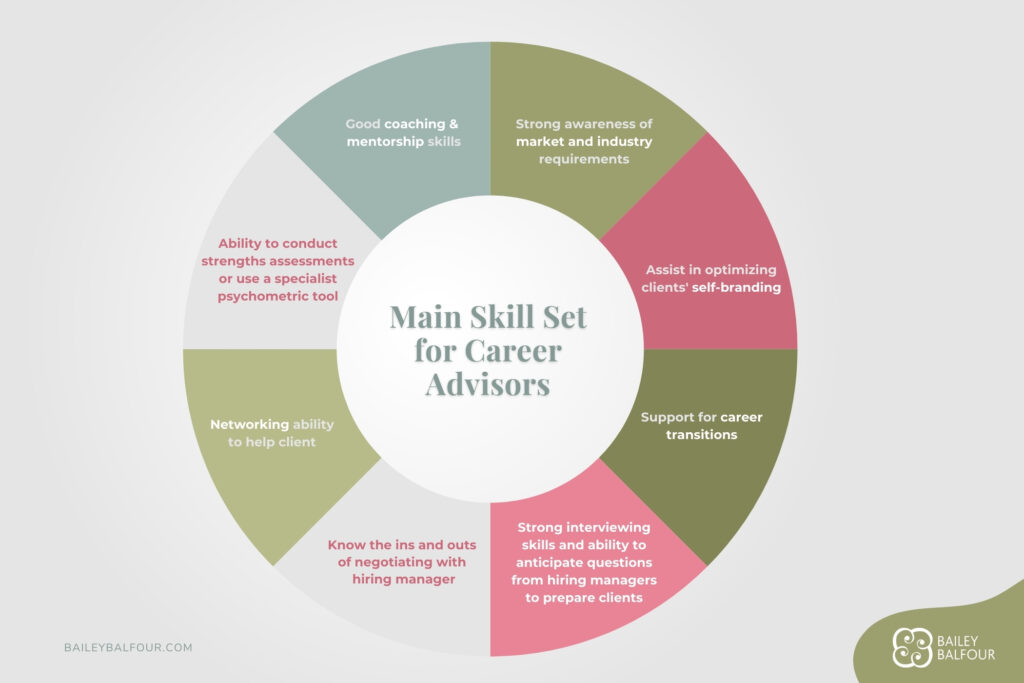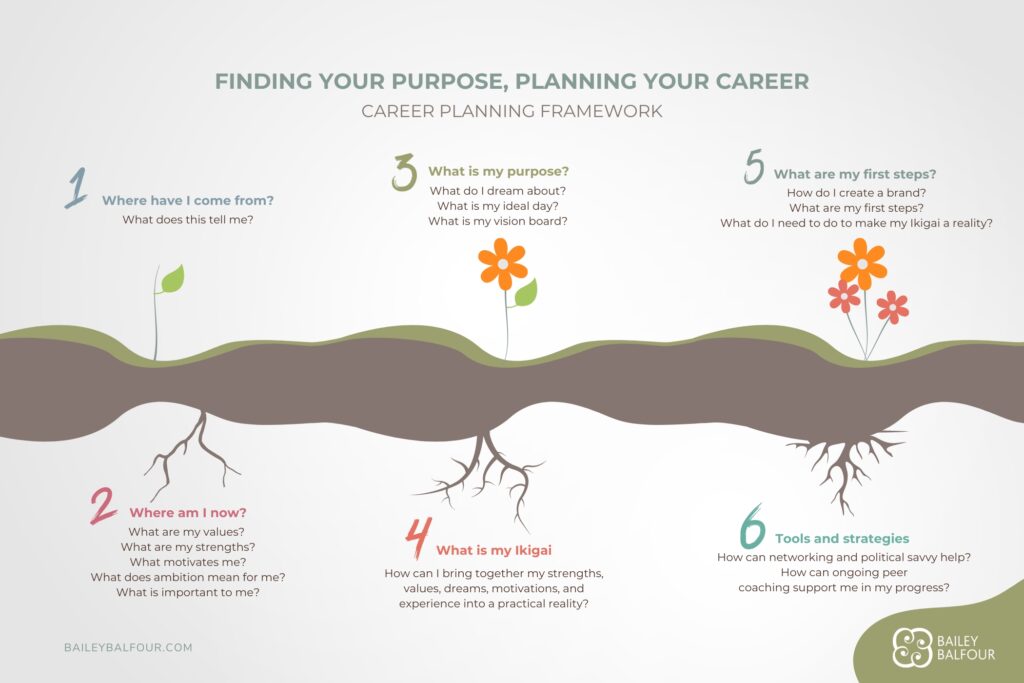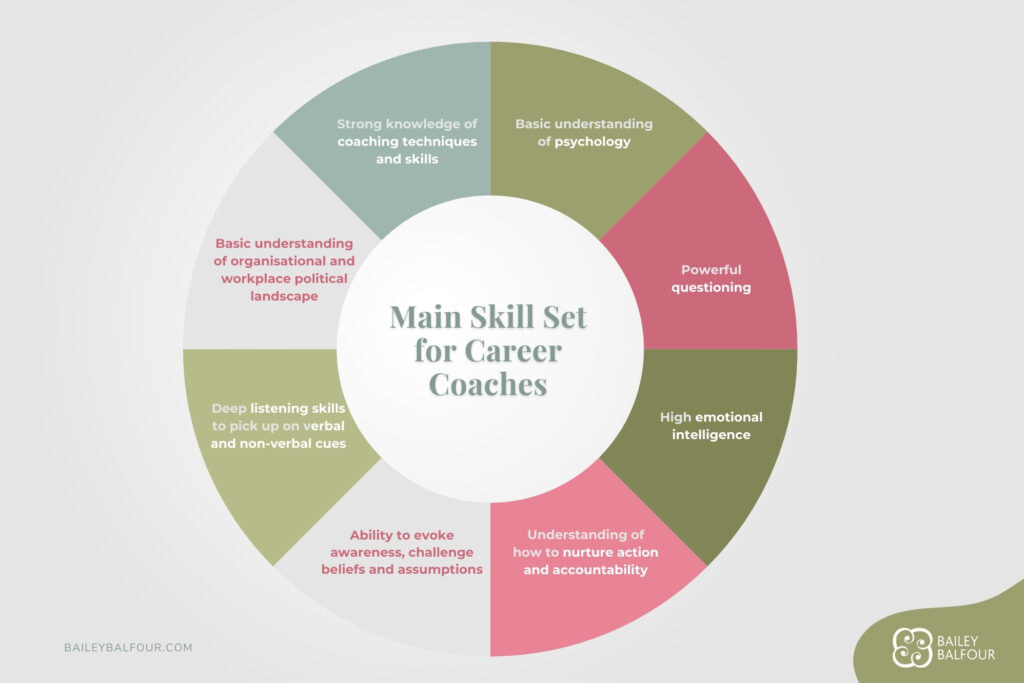
How to Become a Career Coach
Ever stumbled in your career once and needed a little help to get back on track? Chances are, you’ve engaged a career coach, career advisor, or counselor at least once in your life but weren’t even aware of it!
Be it seeking advice from the internet on basic resume skills or speaking with an advisor to see what careers would potentially suit you, career coaching is not uncommon, and here’s what you need to know if you’re thinking of jumping start your career as a career coach.
What is career coaching?
Career coaching is a service where a certified professional helps you navigate your career goals. They help you understand your aspirations and goals, what your strengths and interests lie, and skill gaps and provide you guidance and support to help you reach your desired career.
Types of career coaching
There are two types of career coaching that share similar terminology but provide different services to clients. They differ not only in their coaching methodology and approach but also in the quality of experience they offer to clients. It’s really important to recognise these differences to ensure you deliver the best possible service to your clients.
When categorising career coaches, we can identify two main types:
- Career advisory and career guidance counseling
- Career coaching
While there may be overlap between the two types of coaching, career advisory and counseling tend to focus more on practical skills and tools to help you land a job while career coaching emphasises self-discovery and personal development, getting into the heart of who you are and what you seek in your working life.
However, both approaches ultimately support individuals in achieving fulfillment and success in their careers!
(1) Career advisory and career counseling
Career advisory and career counseling specialise in offering practical assistance and guidance aimed at helping individuals secure roles within companies. Career advisors possess a deep understanding of the job market and landscape, enabling them to evaluate an individual’s skills using psychometric tests to gain insights into their strengths and preferences. They are well-equipped to match a person’s skill set to suitable opportunities.
Additionally, their focus areas include resume and CV writing, interview preparation, self-branding, and negotiation regarding salary requirements. Ultimately, this type of coaching aims to equip clients with the necessary tools and knowledge to navigate the job market effectively and make informed career decisions.
What are the reasons people hire career advisors?
- To get help finding out what they want to do in their career
- For assistance with job interviews and writing good resumes
- To understand their strengths, skills, and interests better
- If they’re thinking about changing careers midway but don’t know how
- For guidance when switching industries or roles
- To get support for moving up in their current job
- They’ve been unemployed for quite some time and need assistance to figure out how to be employable

Main skill set needed to do this job well:
- Good coaching and mentorship skills
- Strong awareness of market and industry requirements
- Ability to conduct strengths assessments or use a specialist psychometric tool
- Networking ability to help client
- Know the ins and outs of negotiating salary
- Strong interviewing skills and ability to anticipate questions from hiring managers to prepare clients
- Support for career transitions
- Assist in optimizing clients’ LinkedIn profiles to enhance visibility and networking opportunities.
- Provide constructive feedback and coaching on interview responses, body language, and presentation.
(2) Career coaching
On the other hand, career coaching goes deeper into the individual’s personal and professional aspirations, values, and goals. It involves a more holistic approach, aiming to uncover the core aspects of who the individual is and what they truly desire in their working life.
Career coaching sessions may explore themes such as identifying passions, overcoming obstacles, achieving work-life balance, and aligning career choices with personal values.
In our Bailey Balfour ICF level 1 coach training programme, we equip our coaches with our framework below. We teach coaches how to conduct such assessments and equip that with coaching tools to help clients discover their desires and career plans.

What are the reasons people hire career coaches?
- They do not know what jobs match their strengths and want to explore
- They want to discover what their calling is in the workforce that they can draw meaning from
- They are uncertain about what they value in their career and want to find out more
- They need clarity over what’s driving their dissatisfaction and how they can overcome it
- They have been unhappy even after acquiring their dream job and want to discover the root cause of their unhappiness
- Need a better understanding of motivators at work and what drives them to be their best
- Find tools and strategies within themselves to navigate networking, personal branding, interview
- Create their 5 or 10-year career plan with a coach and steps to develop steps to get there

Main skill set needed to do this job well:
- Good knowledge of coaching techniques and skills
- Basic psychology understanding
- Warm and ability to maintain trust
- Basic understanding of organisational and workplace political landscape
- Deep listening skills to pick up on verbal and non-verbal cues
- Powerful questioning
- Ability to evoke awareness, challenge beliefs and assumptions
- Understanding of how to nurture action and accountability
- Good planning and goal-setting
- Good management skills to lead client and self
- High emotional intelligence
What certifications do you need to see from a career coach
The requirements for becoming a career coach typically vary depending on the country. It’s advisable to conduct some basic research to understand what is needed in your specific country.
If your goal is to become a career coach, acquiring a coaching credential from an accredited coaching institution would be a strong start. Opting for a more generic coach training programme will allow you to specialise in career coaching and other forms of coaching like executive coaching, life coaching, performance coaching and more.
If you are hoping to become an all rounded career coach with some career advisory background, you might consider exploring hybrid accredited coach training programmes that primarily focus on career coaching as their main curriculum and are certified by an accredited coaching body.
Your choice should align with the niche you wish to establish yourself in within the coaching industry. Overall, having a coaching qualification is essential and can significantly enhance your credibility and marketability in the field.
In summary
Now that you have a clearer understanding of what career coaching entails, it’s up to you to determine which areas you’d like to specialise in. Discovering your niche is important for establishing yourself as an expert in that particular field.
At Bailey Balfour, we offer an ICF Level 1 coach certification programme designed for coaches and leaders interested in pursuing executive and career coaching. If you’re interested in learning more, you can download our brochure to review our curriculum or reach out to us for further information.
If you’re interested in specialising in any of the above, we train leaders to become great executive coaches and introduce frameworks and models they can use. Find out more about our Level 1 and Level 2 ICF trainings.

Who are we?
Learn more about Bailey Balfour, who we are, our values, and how 22 years of executive coaching experience inspired our acclaimed IFC accredited training programmes. Meet our faculty and discover why you might like to learn with us.

Free Taster
One of the most effective ways to decide whether our programme is the best for you is to experience a short taster – to see what you could expect and get a feel for the different elements of our courses including mentor coaching, our self-directed resources and our learning system. You can enjoy this taster at your own pace at any time so register now.

Book a call
Having a call with Jean Balfour, our programme director, can help answer questions about our pathways in a way that is relevant to you. How will you fit it in around your schedule? How will it speak to your existing role? How could it enhance your skillset for the future in your career? Why is accreditation important? Schedule a call with Jean and answer these questions and take the next step in enrolling.

Upcoming Events and Webinars
Join us in engaging (and free) webinars – from networking to coaching skills, and purposeful questions – there is bound to be an upcoming topic that speaks to you. Register now – and don’t worry – if you can’t make the live session we will send you a recording so that you can enjoy it in your own time.
Making Sense of Work Podcast
How’s Work at the Moment? We all work – and yet we often struggle with work. Even very ambitious people find parts of work difficult. This podcast is for you if you’d like to build a new and better relationships with your working life. Join Jean Balfour and guests as they explore everything to do with our working lives, starting with how do we find our purpose, how do make sense of our organisations and what major movements are we seeing in the workplace today?
About the Author
Jean Balfour is Managing Director of Bailey Balfour and Programme Director of our ICF Accredited Coach Training Programmes. Jean is passionate about helping people to have good conversations both at work and at home. She believes that coaching is a life skill and that you never regret learning to coach.



